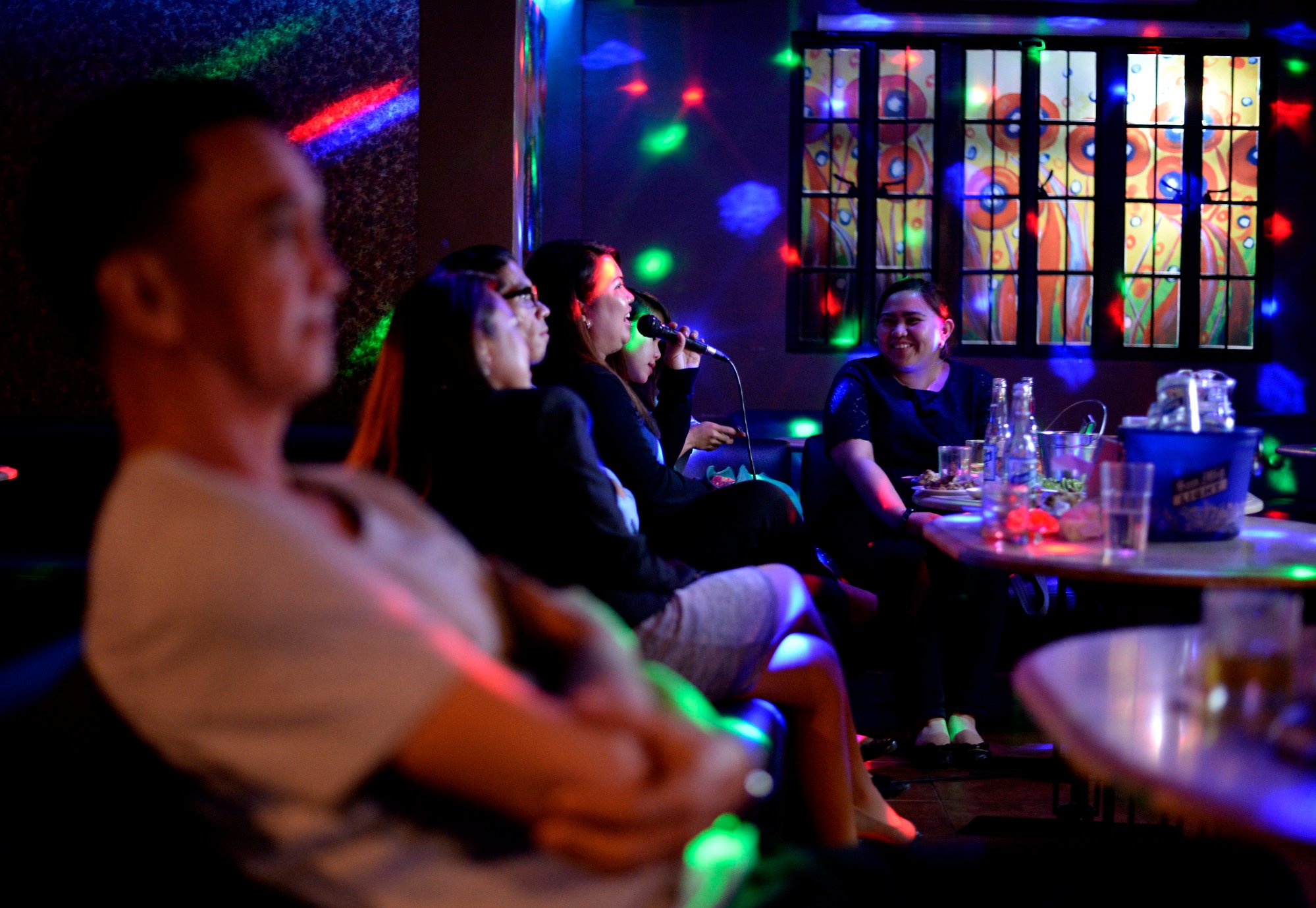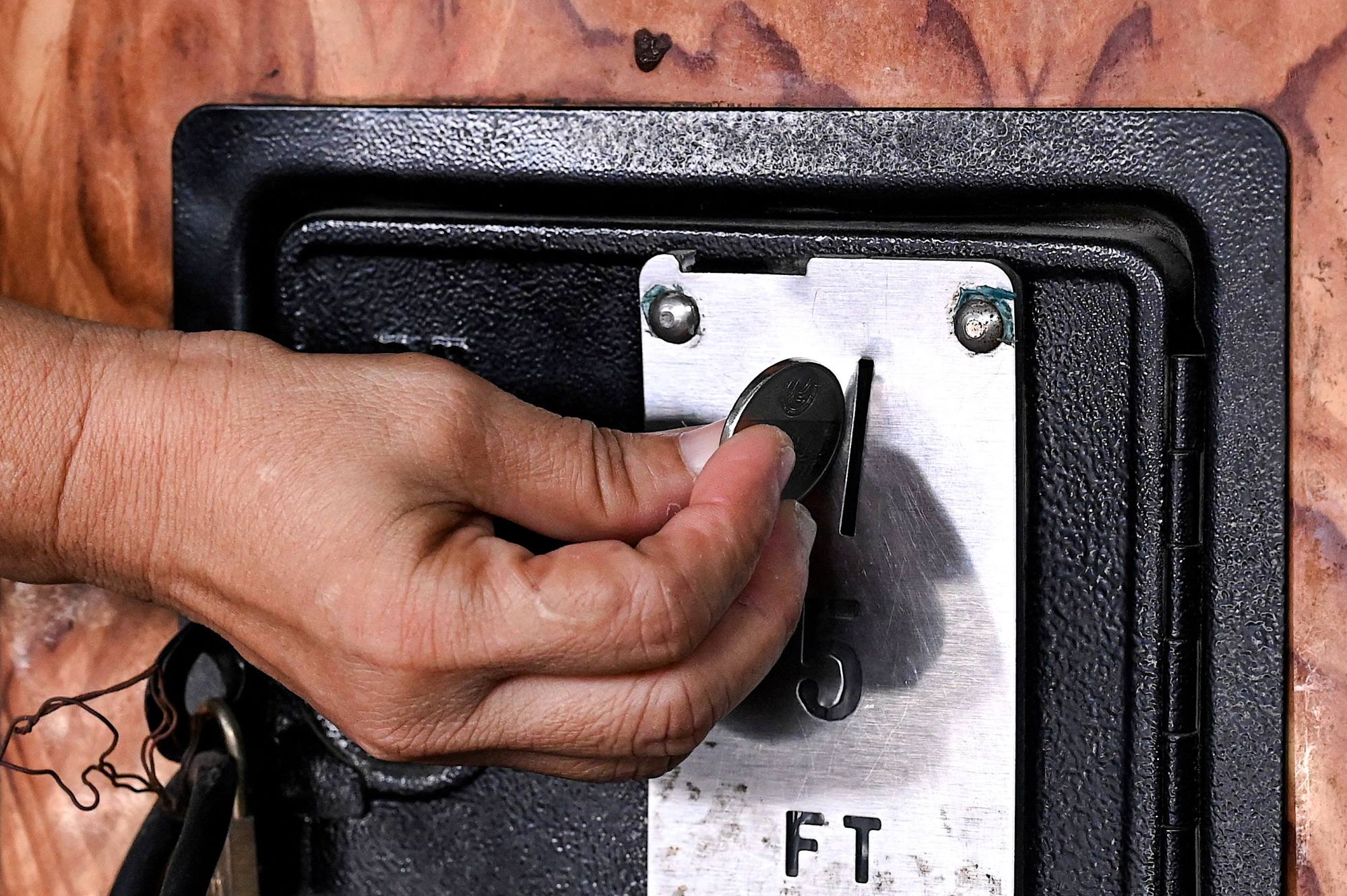Why do Filipinos love karaoke? ‘It’s a way to relax’ for as little as 9 cents

The karaoke machine is one of six at the terminal, but drivers and passengers waiting for a ride appear unbothered by the competing songs reverberating through speakers.
“I always sing that song, it’s my favourite,” said Soriano, wearing a long-sleeved Jordan top and tracksuit pants.
After consulting a well-thumbed plastic folder of songs, street-sweeper Bernardo Aguire, 67, settles on Frank Sinatra’s “My Way”, and pops a coin into the slot.

It is a bold choice in a country where the song has reportedly got people killed – allegedly because they sang it poorly.
Aguire, unfazed by the stories that have become an urban legend, finishes his rendition unscathed.
Felomina Hernane, 52, owns the eatery where the karaoke machine cranks up at 8am and does not stop until 10pm or later, seven days a week.
She bought the machine to attract customers and it has been a boon to earnings, bringing in as much as 18,000 pesos (US$317) a month.
“It’s a huge help for my business,” Hernane said.
Singing makes the drivers happy, she added. “It entertains them,” she said. “It’s a way to relax after driving.”
In a crowded neighbourhood in Manila, tricycles deliver karaoke machine casings to stores where they are fitted with speakers, amplifiers and televisions.
Their prices depend on the quality of the electronics inside them, with a basic machine starting at around 19,000 pesos (US$335) and a premium version topping 46,000 pesos.
Alfred Condez works at a store overflowing with machines in various stages of assembly. It takes several hours for employees to finish wiring one, and customers are often happy to wait.
“We love singing,” said Condez, 40.
As if to prove his point, he picks up a microphone and stands on the footpath to test an assembled machine’s sound quality, his deep voice echoing into the noisy street.
The busiest period for the karaoke assembly business is November and December, when Filipinos hold Christmas and New Year parties, said Condez. His shop sells as many as 10 machines a day during those months.
Filipino women cyclists reclaim Manila’s roads as they defy ‘unladylike’ stigma
Filipino women cyclists reclaim Manila’s roads as they defy ‘unladylike’ stigma
Karaoke took off in the Philippines in the 1980s, said Krina Cayabyab, a vocal instructor and assistant professor in the University of the Philippines’ music department.
But she said the country’s love of singing was deeply rooted in its colonial past, starting with the Spanish and then the Americans, whose music was absorbed by Filipinos.
“It’s really tied into that reproducing and borrowing of stuff that Filipinos would hear,” Cayabyab said.
Some parents – if they can afford lessons – send their children to music schools to learn how to sing so they can develop the confidence to perform in front of others, she added.

For many Filipinos, karaoke is one of the few affordable entertainment options available to them.
In a hardscrabble district of Manila, children and young adults gather outside a small store where the karaoke machine is in high demand.
“My friends and I are just hanging out because it’s boring at home,” said Honey Servito, 24.
“I’m not really a singer, it’s just that when we have nothing better to do at home, my friends and I go here and sing,” she said. “It takes away my stress and boredom.”



 Play with Welcome Bonus Up to 300%
Play with Welcome Bonus Up to 300%